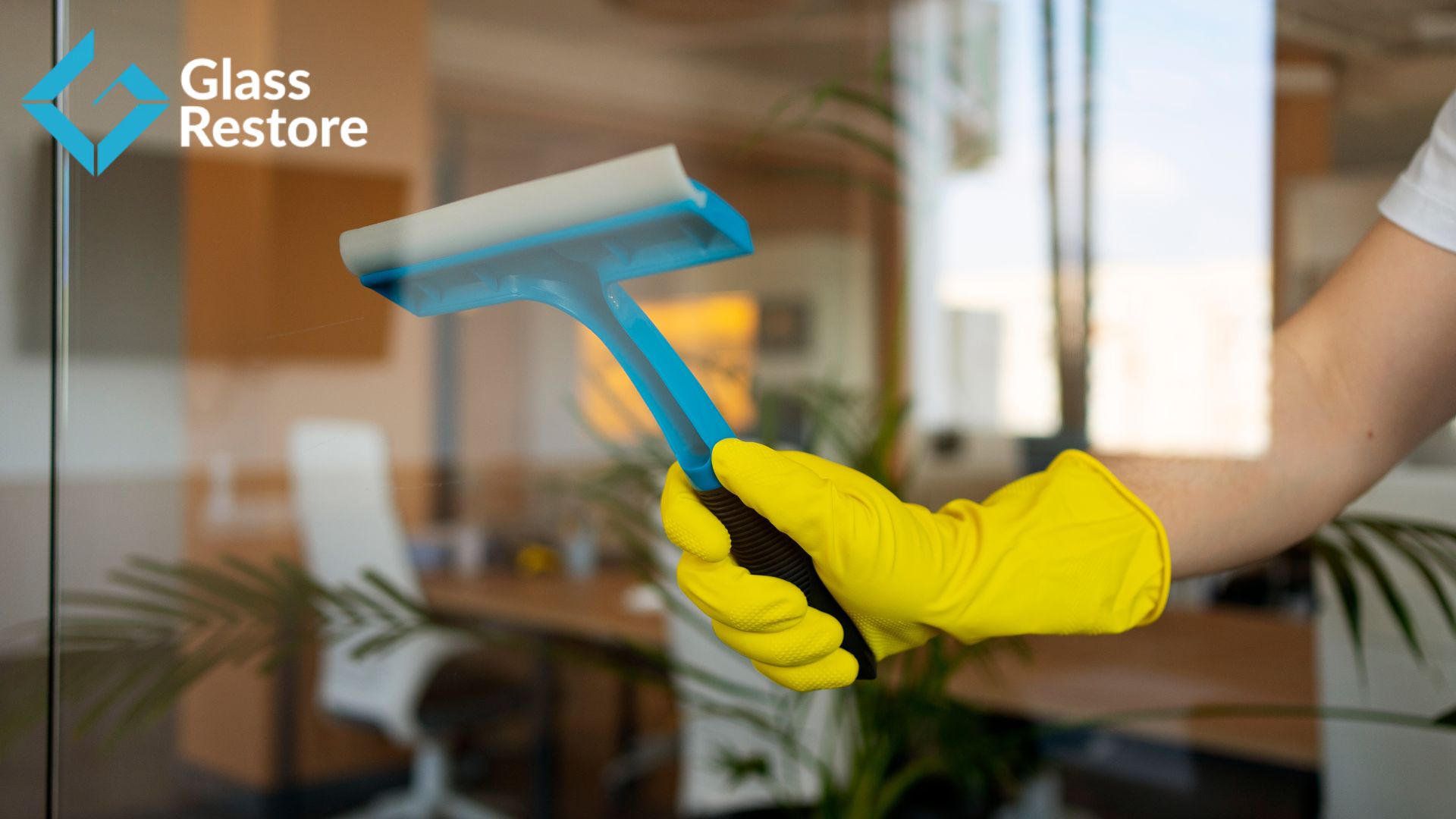Glass surfaces are a popular choice for homes, businesses, and vehicles due to their transparency, elegance, and versatility. However, over time, they can lose their shine and develop a dull appearance due to scratches, water stains, or general wear and tear. This is where professional glass polishing services come into play. With expert care and the right tools, professional glass polishing can restore the original clarity and smoothness of glass, making it look brand new.
In this article, we’ll explore the importance of glass polishing, the process involved, and why hiring a professional service is the best choice for your glass restoration needs.
Why Glass Polishing is Essential
Glass surfaces are exposed to various elements that can cause them to lose their luster. Whether it’s water spots, fingerprints, or scratches from daily use, over time, glass can appear cloudy or scratched. Professional glass polishing services offer a solution to these issues, effectively restoring clarity and smoothness.
Professional polishing involves more than just cleaning. It requires specialized techniques and tools to remove imperfections and enhance the glass’s reflective properties. This service is essential for maintaining the aesthetic appeal and functionality of your glass surfaces, ensuring that they continue to perform optimally for years to come.
Common Issues That Professional Glass Polishing Can Address
- Scratches: Minor scratches on glass surfaces can be removed with polishing, restoring clarity and smoothness.
- Water stains: Hard water deposits leave behind unsightly stains on windows, mirrors, and other glass surfaces. Professional polishing can remove these stains without damaging the glass.
- Cloudiness and haze: Over time, glass surfaces can become cloudy, especially if they’re exposed to outdoor elements. Polishing removes the build-up of dirt, grime, and other residues that cause haze.
- Fingerprint marks: Fingerprints can leave greasy marks on glass surfaces. Polishing can ensure the glass remains spotless, enhancing its overall appearance.
The Process of Professional Glass Polishing
Professional glass polishing services follow a multi-step process to restore your glass to its original condition. Here’s what you can expect during the service:
- Assessment of the Glass Condition
- A technician will first assess the condition of the glass to determine the extent of the damage or wear.
- This step helps the professional decide on the appropriate polishing method and the type of tools to be used.
- Cleaning the Surface
- The glass will be thoroughly cleaned to remove any dirt, dust, or debris that could interfere with the polishing process.
- Cleaning ensures that the polishing compound can work effectively without being blocked by surface contaminants.
- Application of Polishing Compound
- A special polishing compound is applied to the surface of the glass. This compound is designed to smooth out scratches and other imperfections.
- For deeper scratches, more than one layer of compound may be applied, and the technician will use varying levels of abrasive material to restore the surface.
- Buffing the Glass
- Using a buffing tool, the technician will gently buff the surface, working the compound into the glass.
- This step removes the damaged layer of glass, leaving a smooth and shiny finish behind.
- Final Cleaning and Inspection
- After polishing, the glass is cleaned once again to remove any leftover compound and polish residues.
- A final inspection is done to ensure that the glass is restored to its original clarity and that all imperfections have been removed.
Benefits of Professional Glass Polishing
- Restores Clarity and Shine: The most significant benefit of professional glass polishing is the restoration of clarity and shine. Whether your glass is used for decorative purposes or practical applications, a polished surface looks much better and more functional.
- Preserves Glass Surfaces: Professional polishing helps preserve the integrity of your glass, preventing further damage from occurring. It helps prevent the accumulation of dirt, stains, and scratches that can affect the surface’s longevity.
- Improves Appearance: Polishing gives your glass a brand-new appearance, removing any cloudiness, haze, or stains that may have developed over time. Whether it’s your home windows or car windshield, polished glass enhances the overall aesthetics.
- Increases Property Value: If you have glass surfaces in your home or office, polished glass can make your property appear more well-maintained, which can, in turn, increase its market value.
- Protects Against Future Damage: Regular professional polishing can help reduce the likelihood of new scratches and stains from appearing on the glass in the future, making it easier to maintain.
When Should You Opt for Professional Glass Polishing?
Here are a few signs that indicate it’s time to schedule professional glass polishing services:
- Visible scratches: If you notice minor scratches on your glass surfaces, it’s best to get them polished before they worsen.
- Water stains or hard water deposits: Hard water stains are common, especially on windows and mirrors. Professional polishing removes these stains without damaging the surface.
- Cloudiness or fogginess: Over time, glass can develop a foggy appearance, particularly in high-humidity areas like bathrooms or kitchens. Polishing restores its clarity.
- Loss of shine: If your glass surfaces no longer have the same shine they once did, polishing will bring back that smooth, reflective finish.
Why Choose Professional Glass Polishing Over DIY?
While DIY glass polishing kits are available, they often don’t produce the same high-quality results as professional services. Here’s why you should opt for a professional instead:
- Expertise: Professional technicians have the experience and training to handle different types of glass and know which techniques will work best for each surface.
- Tools and Equipment: Professionals use specialized equipment, such as rotary buffers and industrial-grade polishing compounds, to achieve superior results.
- Long-Lasting Results: Professional services provide long-lasting results that DIY methods may not be able to replicate, ensuring your glass stays polished for an extended period.
- Time and Effort: Professional services save you time and effort. Polishing glass properly can be time-consuming and requires precision to avoid causing further damage.
Choosing the Right Glass Polishing Service
When selecting a professional service for glass polishing, consider these factors:
- Experience: Choose a company with a proven track record in restoring glass surfaces.
- Reputation: Look for reviews or testimonials from previous customers to gauge the quality of their work.
- Cost: Get multiple quotes from service providers to ensure you’re getting a fair price.
- Guarantees: Opt for a service that offers guarantees on their work, ensuring that you’re satisfied with the results.
Conclusion
Professional glass polishing services are the best solution for restoring the clarity, shine, and functionality of glass surfaces. Whether you’re dealing with minor scratches, water stains, or overall dullness, professional polishing ensures that your glass looks as good as new.
If you’re looking for expert glass polishing services, consider visiting The Glass Restore for reliable, top-quality restoration of your glass surfaces.
FAQs
- How long does it take to polish glass surfaces?
The time it takes to polish glass depends on the extent of the damage. Minor polishing can take as little as 30 minutes, while more extensive restoration may require several hours. - Can I use DIY kits for polishing my glass?
While DIY kits are available, professional services offer better results due to specialized equipment and expertise, ensuring that the glass is polished without causing additional damage. - How often should I have my glass surfaces polished?
The frequency of glass polishing depends on usage. For high-traffic areas like windows or mirrors, polishing once a year is typically sufficient to maintain clarity and shine. However, heavily used surfaces may require more frequent maintenance.



